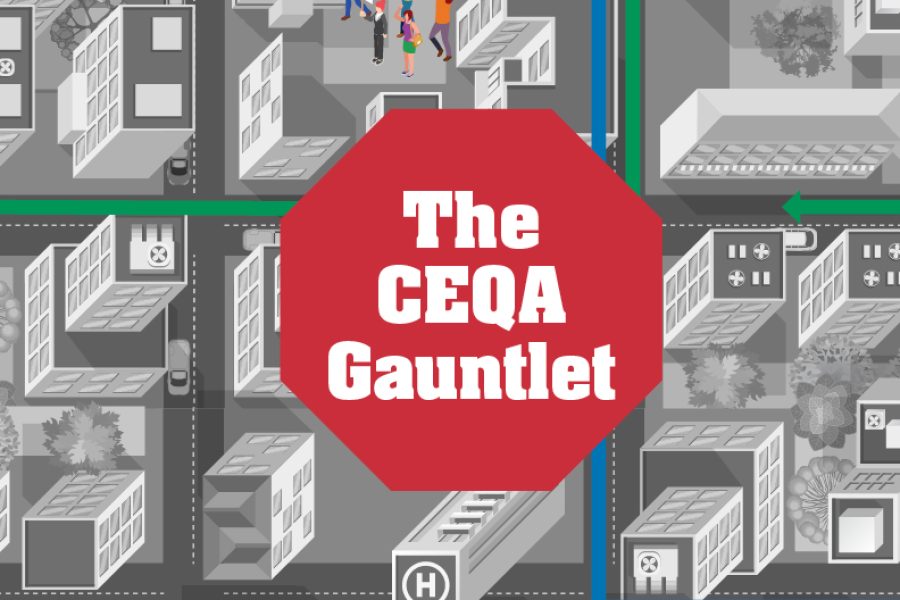Assembly Bill 1001, a bill that expands upon and brings new, highly subjective standards to the California Environmental Quality Act (CEQA), continues to successfully move through the California State Legislature.
California enacted CEQA over five decades ago to reform the public decision-making process to incorporate environmental considerations. A leader in environment-protection policies, the state’s goal was to ensure that state agencies evaluated the impact that projects would have on the environment and find alternative measures if a project contributed to environmental degradation.
Unfortunately, overtime, CEQA grew to become a tool for those who seek to derail projects under the guise of environmental concerns. Many important projects such as schools, hospitals and clinics, projects to reduce wildfire risk and housing projects to solve the homeless crisis have been blocked or delayed due to CEQA.
The irony has become that, even projects with the goal of helping the environment, such as expanding bike lanes, have been derailed by CEQA lawsuits or concerns. Any person can file a lawsuit to challenge a project’s compliance with CEQA – resulting in many suing merely to stall a project they disagree with in their community or financially compete with, even if it complies with CEQA.
Chris Carr highlights real CEQA horror stories in his study, “The CEQA Gauntlet”. He writes that in January of 2021, in the midst of the COVID-19 pandemic, the University of California, San Francisco was set to begin construction on a much-needed new medical center called the Helen Diller Medical Center.
UCSF conducted extensive public outreach efforts during the planning and CEQA application process in an effort to avoid critics attempting to stall the construction. They held 25 community meetings, however, they were not successful. A project of this magnitude received three separate lawsuits from various organizations trying to stop it. Today, we have yet to see how these lawsuits will play out. However, those whose intentions were to derail the project succeeded, utilizing CEQA as their tool.
A recent UC Berkeley study “Examining the Local Land Use Entitlement Process in California to Inform Policy and Process,” found that the longest approval process wait time for some developments could be as long as 48 months. The study reveals the complexities many lead agencies go through to avoid CEQA lawsuits. And many times, this extensive, proactive approval process effort still results in a CEQA lawsuit from critics as seen from UCSF, delaying projects further.
This delay of development construction costs a lot of money. When CEQA is expanded, litigation is more abundant and the costs from delayed projects or costly lawsuits are placed on consumers and taxpayers.
After seeing the devastating effect CEQA has had on vital projects, it remains confusing that Sacramento Democrats are seeking to expand CEQA rather than reform the controversial policy.
AB 1001 would amend CEQA to require mitigation to compensate for adverse air or water quality impacts in disadvantaged communities and requires involvement of people of all races, cultures, incomes and national origins.
The California Chamber of Commerce has placed AB 1001 on their “job killer” list of bills, stating: “The last thing California needs is further litigation that will slow housing construction and increase the time and costs to develop. This bill will impede local governments’ ability to approve new housing projects, depress jobs directly in and associated with the construction industry and further exacerbate California’s cost-of-living crisis already driving families, businesses, and jobs out of the state.”
It would be wiser to move in the direction of streamlining the process so projects can get off the ground faster rather than expanding upon an already dysfunctional policy that costs businesses and taxpayers time and money.


